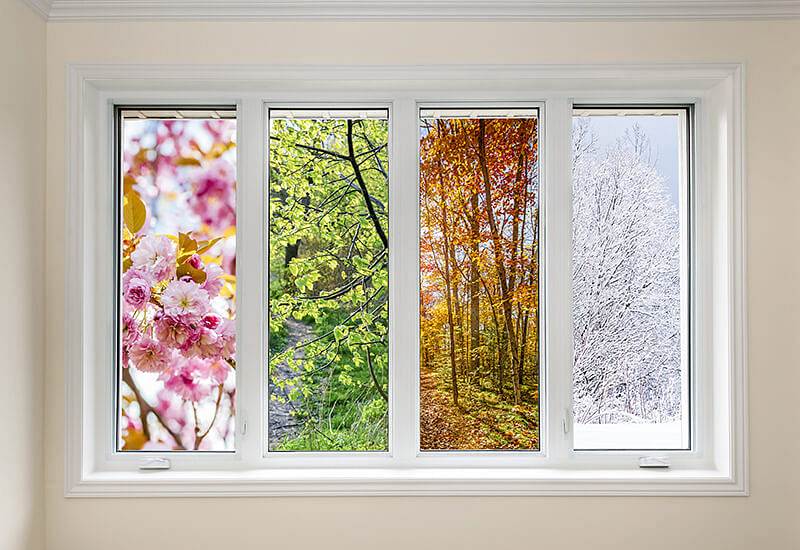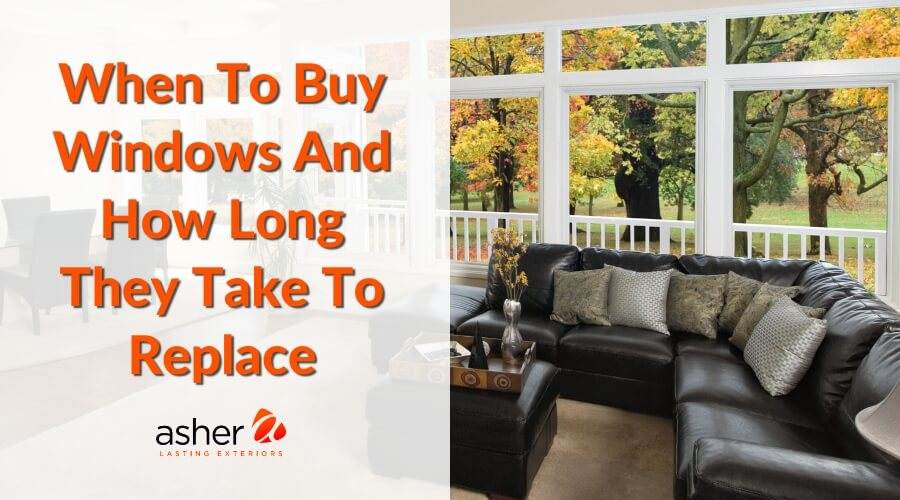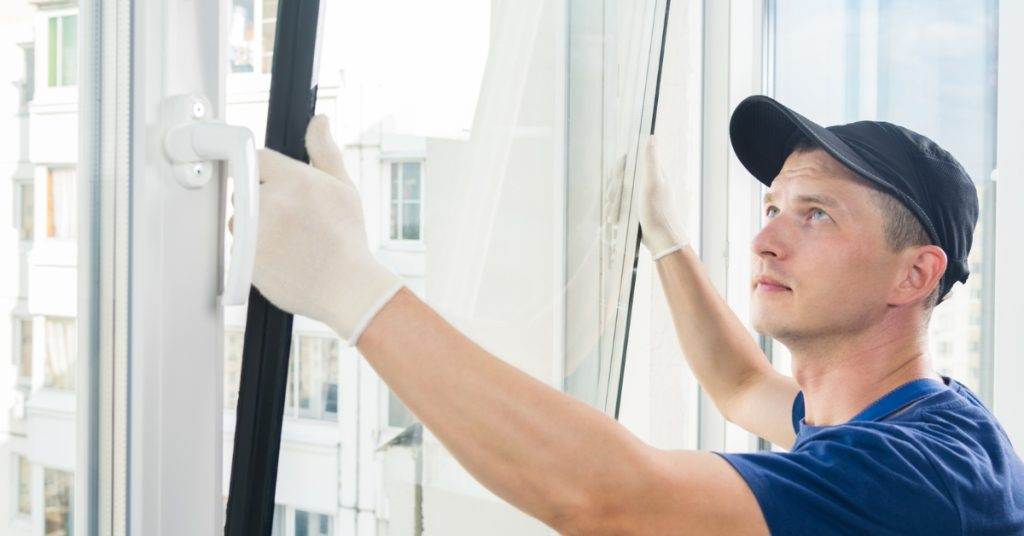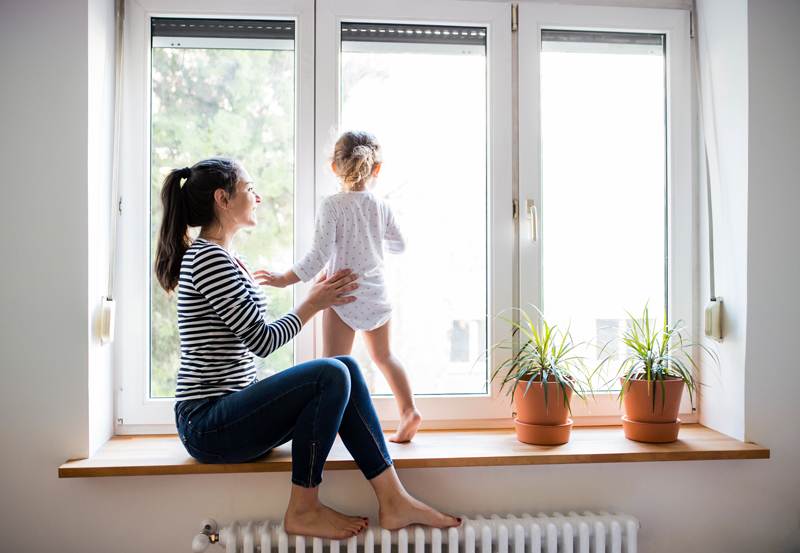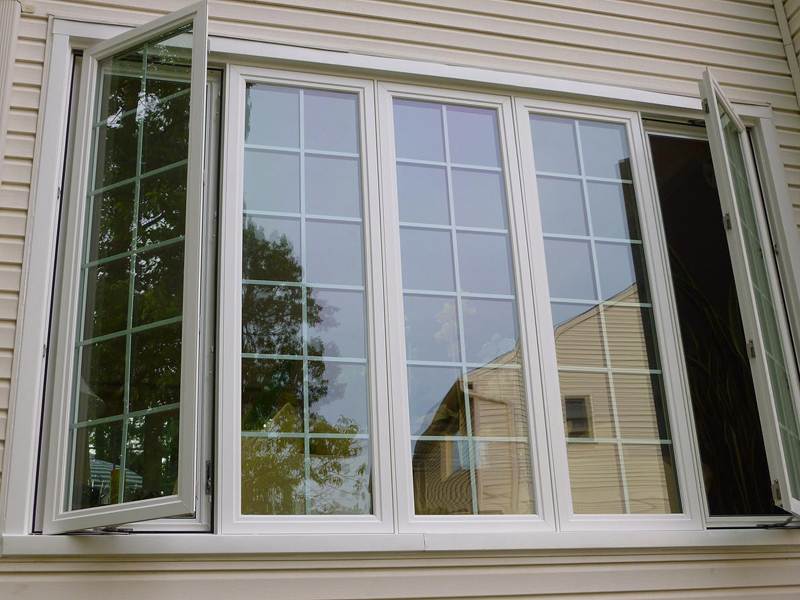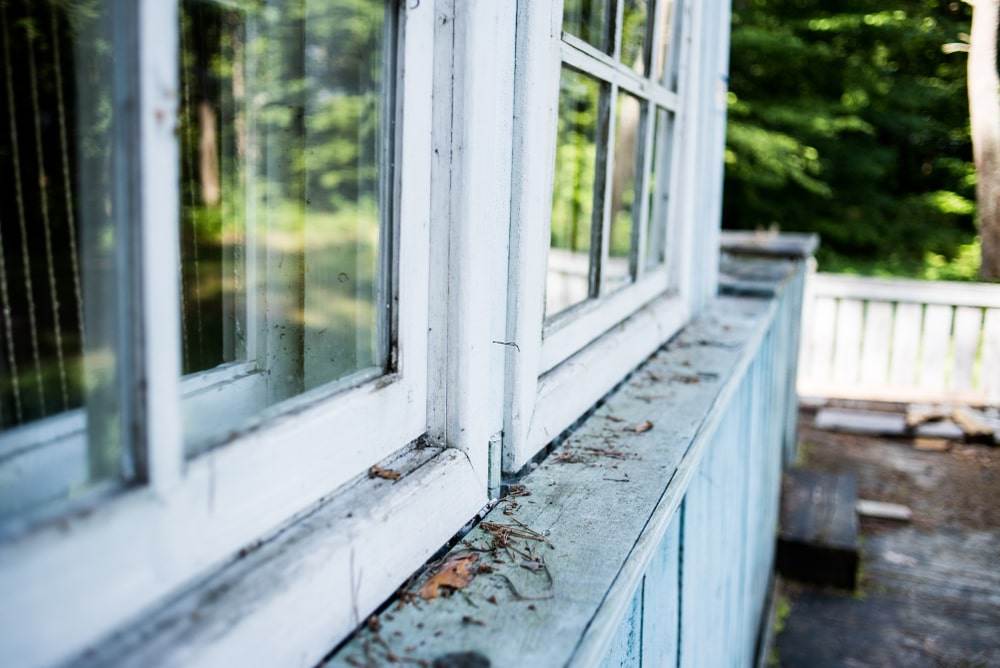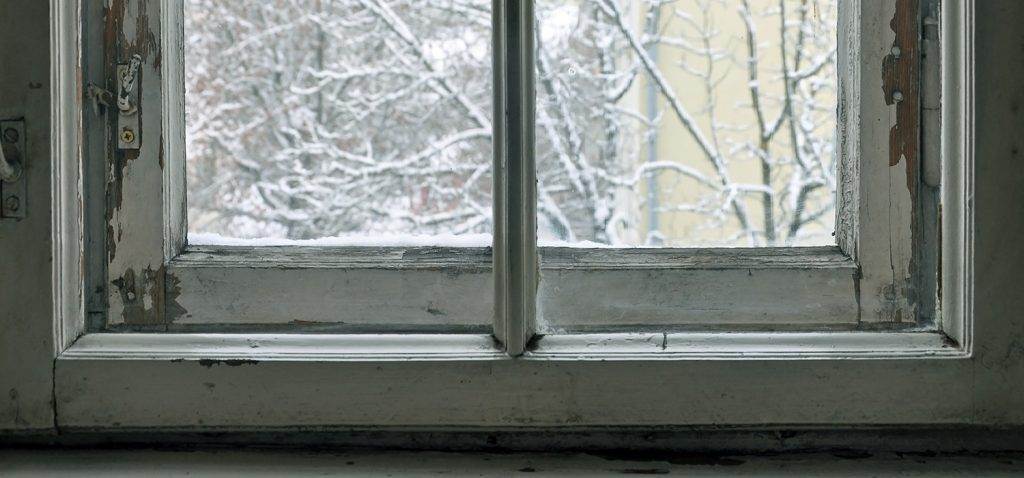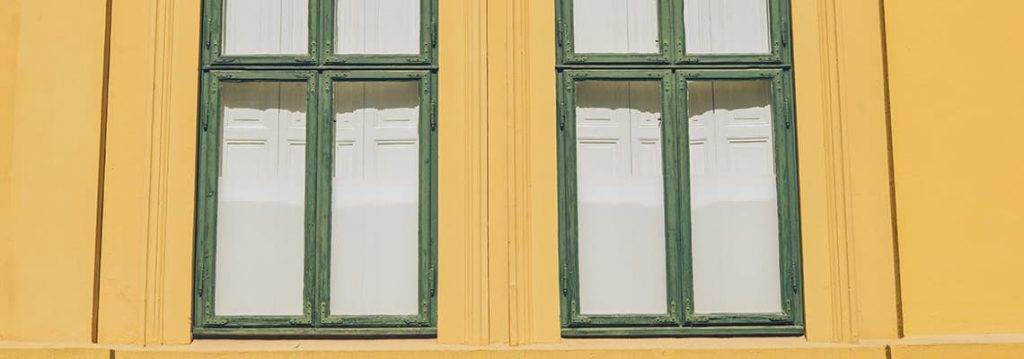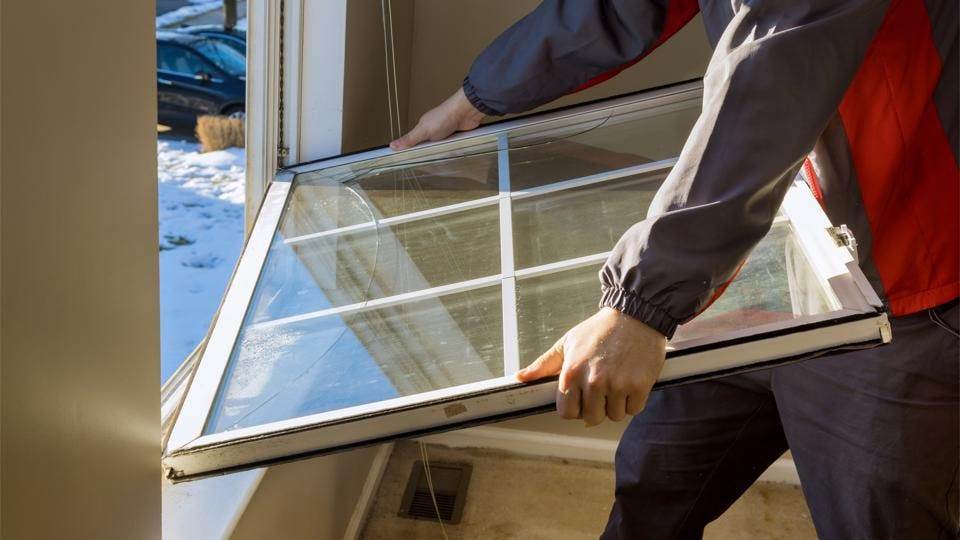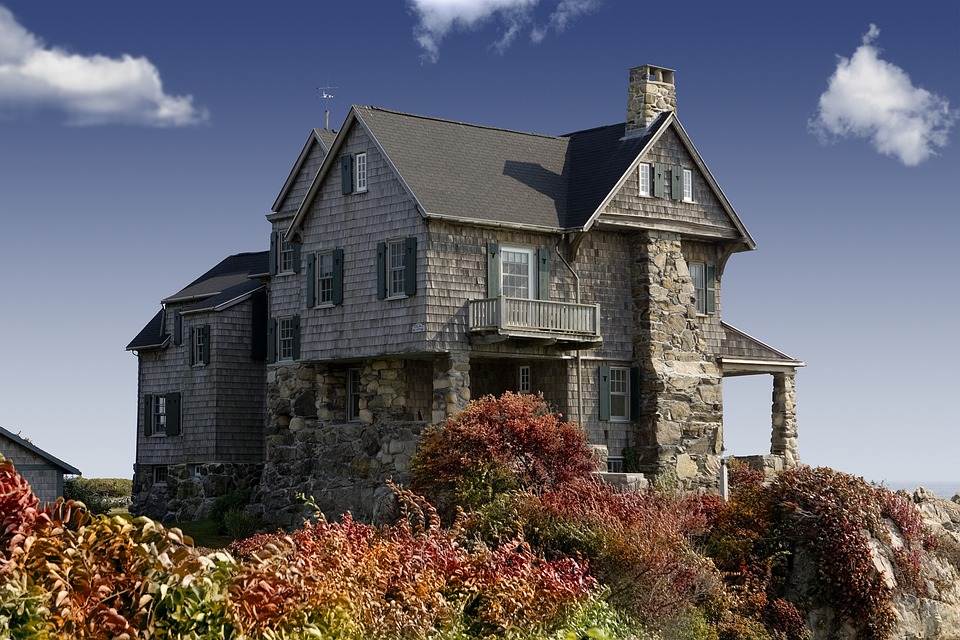Replacing windows can be a significant investment, but have you ever wondered if replacing all your windows at once could save you money in the long run? In this article, we explore the potential cost savings of replacing all windows simultaneously and delve into the factors that could affect the overall expense. Whether you’re looking to enhance your home’s energy efficiency or improve its aesthetic appeal, we’ve got the answers you’re looking for. So, before you embark on that window replacement project, read on to find out if replacing all your windows at once is a budget-friendly decision.
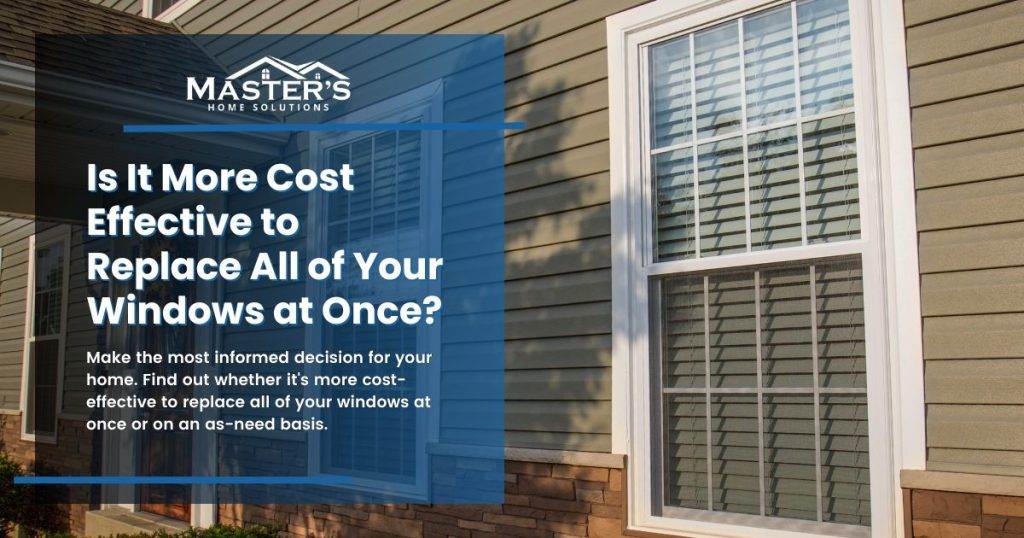
This image is property of mastershomesolutions.com.
Factors to Consider
Age and Condition of the Existing Windows
When considering whether to replace all windows at once, one key factor to evaluate is the age and condition of the existing windows. Older windows are more likely to be less energy-efficient, have draft issues, and provide inadequate insulation. If your windows are showing signs of wear and tear, such as cracked glass or rotting frames, it may be an indication that replacement is necessary. Assessing the overall condition of the windows is crucial in determining whether a full replacement is needed.
Size and Type of Windows
The size and type of windows in your home is another essential factor to consider. If your windows are all of similar size and type, it may be more cost-effective to replace them all at once. This allows for bulk ordering and installation of the windows, potentially leading to discounts from suppliers or contractors. On the other hand, if your home has a mix of window sizes and types, replacing them individually may be a more practical approach, as it allows you to prioritize the most problematic windows and manage the costs over time.
Energy Efficiency Upgrades
Energy efficiency is a significant consideration for homeowners looking to replace their windows. Upgrading to energy-efficient windows can result in long-term cost savings on energy bills by reducing heat transfer and improving insulation. When deciding whether to replace all windows at once, it is important to consider the potential energy savings that can be achieved by installing new, energy-efficient windows throughout your home. This aspect can have a significant impact on the financial benefits of replacing all windows at once.
Window Installation Costs
The cost of window installation is a crucial factor in determining the feasibility of replacing all windows at once. When replacing windows individually, you may incur multiple installation costs throughout the process. On the other hand, replacing all windows at once allows for a comprehensive installation, potentially resulting in discounted rates from contractors. Additionally, ordering windows in bulk can often lead to cost savings on the purchase itself. It is important to weigh the overall costs of installation and window purchases when deciding whether to replace all windows at once.
Local Building Codes and Regulations
Before embarking on a window replacement project, it is essential to familiarize yourself with the local building codes and regulations in your area. Some areas may have specific requirements regarding window installations, such as the type of glass or window materials allowed. Additionally, certain neighborhoods or historic districts may have specific guidelines for window replacements in order to maintain the architectural integrity of the area. Understanding and complying with these codes and regulations is crucial to ensure a successful window replacement project.
Advantages of Replacing All Windows at Once
Cost Savings
Replacing all windows at once can potentially result in cost savings compared to replacing them individually. When ordering windows in bulk, suppliers may offer discounts, reducing the overall cost of window purchases. Additionally, hiring a contractor for a comprehensive installation can result in lower labor costs compared to multiple installations over time. Considering the potential savings on both window purchases and installation costs, replacing all windows at once can be a financially advantageous option.
Consistent Appearance
Another advantage of replacing all windows at once is the ability to achieve a consistent appearance throughout your home. If your existing windows are mismatched or outdated, replacing them individually may result in an inconsistent look. By replacing all windows at once, you can ensure that the same style, material, and design are maintained throughout your home. This can enhance the aesthetic appeal of your property and potentially add value to your home.
Increased Energy Efficiency
Replacing all windows at once provides the opportunity to upgrade to energy-efficient windows throughout your home. Energy-efficient windows are designed to minimize heat transfer and improve insulation, helping to reduce energy consumption and lower utility bills. By replacing all windows at once, you can maximize the energy-saving benefits, as every window in your home will contribute to improved efficiency. This can have a significant impact on both your wallet and the environment.
Enhanced Security
Home security is a top priority for many homeowners, and replacing all windows at once can contribute to a safer living environment. New windows often come with advanced security features such as multi-point locking systems, laminated glass with impact resistance, and reinforced frames. By replacing all windows at once, you can ensure that these security features are consistent throughout your home, providing enhanced protection against potential break-ins and intrusions.
Access to Updated Window Features
Advancements in window technology and design are continually being made, offering homeowners an array of features and options to choose from. By replacing all windows at once, you gain access to the latest window features, such as improved sound insulation, UV protection, and self-cleaning glass. These modern advancements can enhance your living experience and provide additional benefits beyond energy efficiency and aesthetics. Replacing all windows at once allows you to take advantage of these updated features and enjoy a higher level of comfort and convenience in your home.
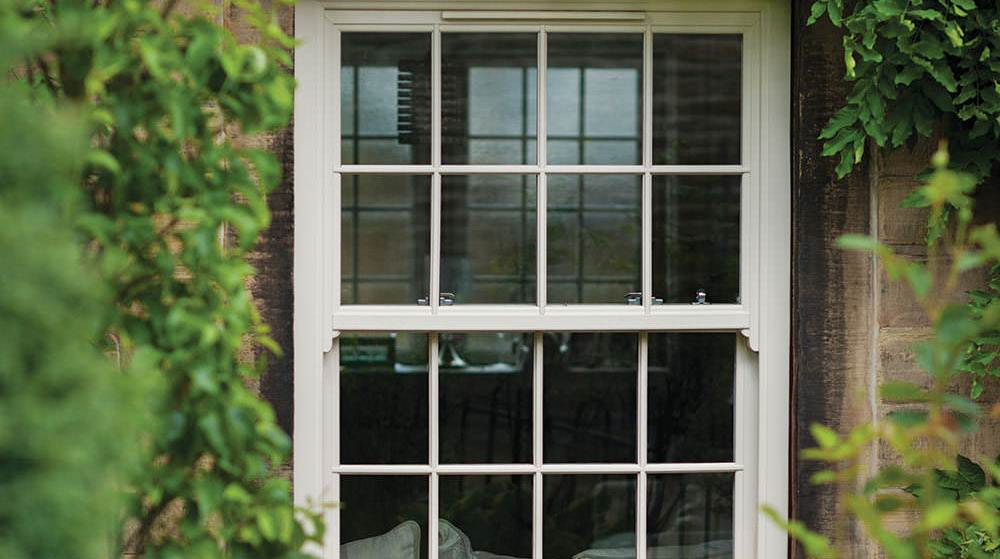
This image is property of www.london-sash-windows.com.
Disadvantages of Replacing All Windows at Once
Higher Upfront Cost
While replacing all windows at once can offer long-term cost savings, the upfront cost can be a significant disadvantage for some homeowners. Replacing all windows involves a substantial investment, as it requires the purchase of multiple windows, as well as the cost of installation. For homeowners with limited financial resources, the higher upfront cost may make it more challenging to replace all windows at once. It is important to evaluate your budget and consider alternative financing options, as discussed later in this article, to make the decision that best suits your financial situation.
Disruption to Daily Life
Replacing all windows at once can result in significant disruption to your daily life during the installation process. This disruption includes noise, dust, and limited access to certain areas of your home as the work is being carried out. Depending on the size of your home and the number of windows being replaced, the installation process can take several days or even weeks. This disruption may require adjustments to your routine and possibly temporary relocation from the affected areas. If you have a busy household or work from home, the disruption caused by replacing all windows at once may need to be carefully considered.
Limited Budget Flexibility
Opting to replace all windows at once may limit your budget flexibility in other areas of home improvement or maintenance. The upfront cost of replacing all windows can be substantial, potentially leaving limited funds for other projects or unexpected expenses that may arise. It is important to carefully assess your overall financial situation and prioritize your home improvement needs to ensure that opting for a full window replacement aligns with your budget and long-term goals.
Potential Unforeseen Issues
As with any major home renovation project, there is always the potential for unforeseen issues to arise during the window replacement process. These issues may include unexpected structural damage, underlying moisture problems, or the discovery of toxic materials such as lead or asbestos. When replacing all windows at once, the likelihood of encountering unforeseen issues increases compared to replacing windows individually. Dealing with these issues can lead to additional costs, delays, and inconvenience. It is crucial to be prepared for the possibility of unforeseen issues and have a contingency plan in place.
Finding Reliable Contractors
Finding reliable contractors for a window replacement project can be a challenge, particularly when replacing all windows at once. With a comprehensive installation, the magnitude of the project may limit the number of contractors who are available or have the capacity to take on the entire job. It is important to thoroughly research and vet potential contractors, checking credentials, reviews, and references before making a decision. Additionally, obtaining multiple quotes and conducting thorough interviews can help ensure that you select a contractor who meets your needs and can successfully complete the project.
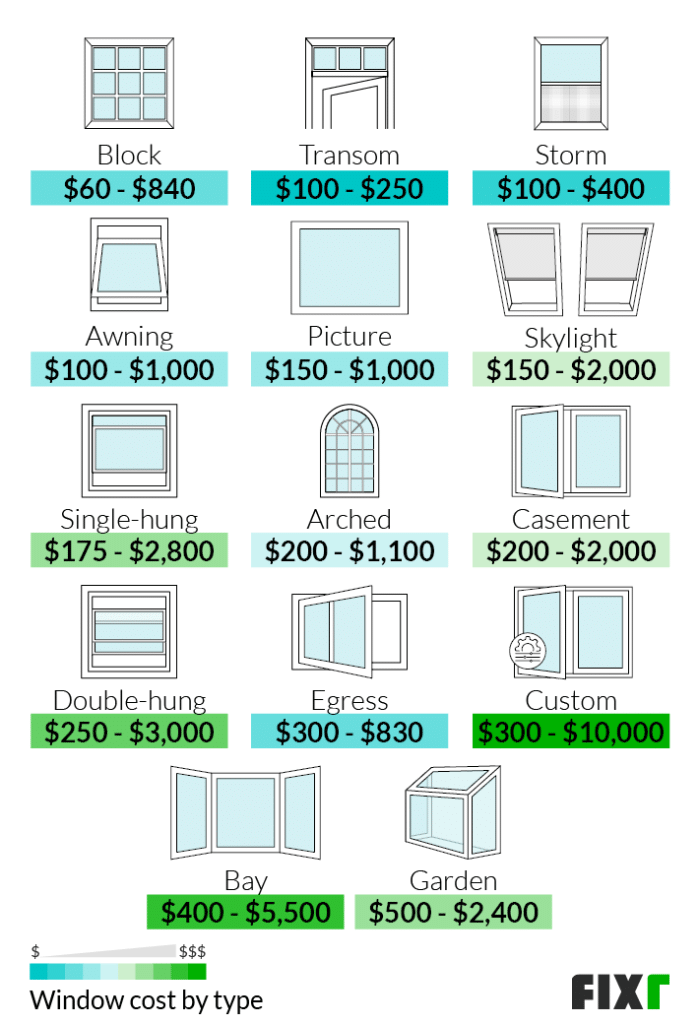
This image is property of assets.fixr.com.
Comparison with Replacing Windows Individually
Cost Analysis
When comparing the cost of replacing all windows at once versus replacing them individually, it is essential to consider the overall costs involved. While replacing all windows at once may have a higher upfront cost, it may result in cost savings in the long run. By ordering windows in bulk, you may be able to negotiate discounted rates with suppliers. Additionally, hiring a contractor for a comprehensive installation can potentially result in lower labor costs compared to multiple installations over time. However, if budget constraints are a primary concern, replacing windows individually allows you to spread out the financial burden and manage costs more flexibly.
Inconvenience Factor
The inconvenience factor is another important aspect to consider when deciding between replacing all windows at once or replacing them individually. Replacing windows individually allows for a gradual process that minimizes disruptions to your daily life. This approach can be more suitable for homeowners who prefer to manage one window replacement at a time and have the flexibility to adapt their schedules accordingly. On the other hand, replacing all windows at once may result in a more significant disruption to your routine, as discussed earlier in this article. It is important to assess your tolerance for inconvenience and choose the option that aligns with your lifestyle and preferences.
Incremental Energy Savings
Upgrading to energy-efficient windows can result in significant energy savings. When replacing windows individually, you can gradually reap the benefits of improved energy efficiency as each new window is installed. This approach allows you to prioritize windows in the areas of your home that require immediate attention. However, replacing all windows at once ensures that every window is energy-efficient, maximizing the overall energy savings throughout your home. If achieving maximum energy efficiency is a priority, replacing all windows at once may be the preferred option.
Mixture of Old and New Windows
Replacing windows individually can result in a mixture of old and new windows throughout your home. This mixture may create inconsistencies in appearance, as the new windows may differ from the existing ones in terms of style, material, or design. While this may not be a concern for some homeowners, others may place importance on achieving a consistent look throughout their property. By replacing all windows at once, you can ensure that the same style, material, and design are maintained throughout your home.
Potential Inconsistencies in Appearance
Replacing all windows at once allows for a consistent appearance throughout your home. However, it is important to consider potential inconsistencies in appearance if your home has multiple facades or sections with varying design styles. Replacing all windows at once may result in a uniform look that may not align with the diverse architectural elements of your home. In such cases, replacing windows individually may offer more flexibility in choosing windows that are better suited to different sections of your home, ensuring a cohesive and harmonious overall appearance.

This image is property of pelicanreplacementwindows.com.
Financing Options
Personal Savings or Cash
Using personal savings or cash is a straightforward and cost-effective option for financing a window replacement project. If you have sufficient funds saved, paying for the project upfront eliminates the need to incur interest charges or monthly payments associated with loans or credit options. However, it is important to evaluate the impact of depleting your savings on other financial goals or unexpected expenses that may arise in the future. Carefully assessing your financial situation and determining the feasibility of utilizing personal savings or cash is crucial before proceeding with a full window replacement.
Home Equity Loans or Lines of Credit
For homeowners who have built up equity in their homes, utilizing a home equity loan or line of credit can be a viable financing option. These types of loans allow you to borrow against the equity you have in your home and use the funds for various purposes, such as home improvements. Home equity loans typically offer fixed interest rates and monthly payments, while home equity lines of credit provide a flexible borrowing option with variable interest rates. It is important to carefully review the terms, interest rates, and repayment options associated with home equity loans or lines of credit before committing to this financing option.
Specialized Window Financing Programs
Many window manufacturers and suppliers offer specialized financing programs to help homeowners finance their window replacement projects. These programs often provide competitive interest rates, flexible repayment terms, and streamlined application processes. Some manufacturers may even offer promotional financing options, such as zero percent interest for a certain period of time. Researching and comparing the financing programs available from reputable window suppliers can help you find a financing option that suits your needs and budget.
Government Incentives and Rebates
Depending on your location, there may be government incentives and rebates available to homeowners who upgrade to energy-efficient windows. These incentives are aimed at promoting energy conservation and reducing greenhouse gas emissions. They can provide financial assistance and tax credits to offset the cost of window replacement. Researching local government programs, utility company rebates, and federal tax incentives can potentially result in substantial cost savings. When evaluating the financial feasibility of a full window replacement, it is important to consider these government incentives and rebates as part of the financing options available to you.
Manufacturer Financing
In addition to specialized financing programs, some window manufacturers offer their own financing options for customers. By directly financing the window purchase and installation, manufacturers can provide competitive rates and favorable terms to homeowners. These financing options may include deferred payment plans, low or zero percent interest rates, and flexible repayment terms. Exploring manufacturer financing options can help you access the benefits of replacing all windows at once while providing budget-friendly payment options tailored to your specific needs.

This image is property of s3media.angieslist.com.
Considerations for Specific Circumstances
Historic or Architecturally Significant Buildings
For homeowners with historic or architecturally significant buildings, replacing windows requires careful consideration and adherence to preservation guidelines. If your property falls under historical preservation regulations, you may be required to replicate the original windows or use materials that maintain the historical integrity of the building. In these cases, replacing windows individually or in smaller groups may be more suitable to ensure compliance with preservation guidelines. It is essential to consult with preservation boards or local historic organizations to determine the best approach when replaci

